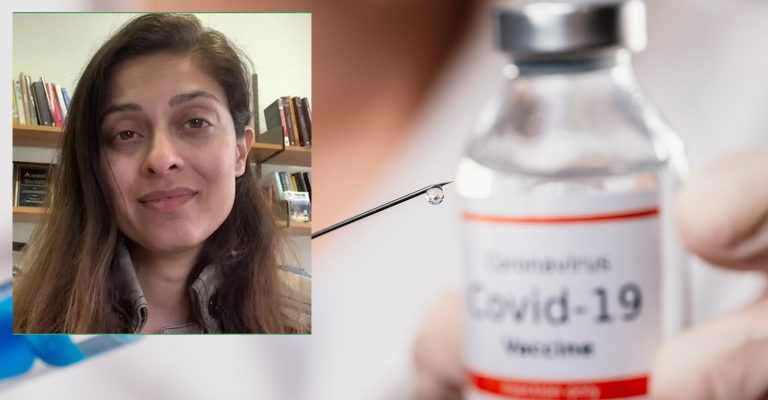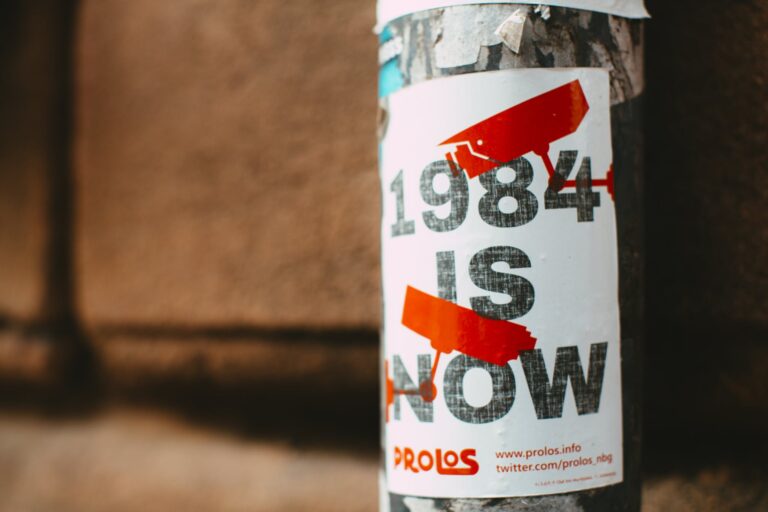Prof Haditsch analyses: Is WHO even competent for pandemic management?
Source: Report24.news, Florian Machl, 21 April 2024
Prof. DDr. Martin Haditsch speaks up with a analysis that summarises the problems surrounding the planned contracts with the WHO. One new aspect he mentions is that the WHO is not impartial due to its privately organised funding. There are no rules on qualifications for the non-democratically elected Director-General, to whom the treaties give unlimited power. The current Director-General was formerly active in a group classified as a violent terrorist organisation.
Watch the 15-minute lecture by the well-known professor, physician and biologist DDr Martin Haditsch here on YouTube. Following his professional as a general practitioner, he became a specialist in hygiene and microbiology in 1995 and a specialist in tropical medicine in 1998. He is a certified emergency doctor and holds the “CTM(TM)” (“Certificate in Travel Medicine” from the International Society of Travel Medicine).
A warm welcome from me. My name is Martin Haditsch. I am reporting from the Austrian Alps, I have retired here for a few days, but have agreed to record my contribution to the Munich WHO Symposium on 6 April 2024, which will take place online.
The topic I have been asked to address is: Does the WHO have the expertise to manage the pandemic? Of course, the first thing to say is:
Who and what is the WHO?
The WHO should aim to maintain and promote global health. Health is fundamentally the highest good and has an extremely positive connotation. In this respect, the WHO has succeeded in building up an outstanding and practically unassailable image in recent decades.
This has also been supported by the fact that the WHO has intervened seemingly altruistically in health crises, i.e. by providing personnel as well as logistics, materials and medical products.
What powers does the WHO have?
De jure, i.e. in purely legal terms? In the past, the WHO acted almost exclusively in an advisory capacity.
De facto, i.e. de facto, the WHO already had authority to issue directives in the past via special agreements with its member states, e.g. in the area of international health regulations, for example when it came to the obligation to vaccinate against yellow fever when travelling to certain areas.
These regulations were binding for the member states, which is why they are called regulations. Irrespective of this, there were sometimes, but also, if you like, unauthorised regulations from countries that went beyond the WHO guidelines.
What is the structure of the WHO? The WHO is a non-democratically legitimised, strictly hierarchically organised, internationally composed sub-organisation of the United Nations. In other words: Neither the representatives of the UN nor those of the WHO have been determined by a democratic election.
In addition, there is no supervisory authority for the decision-making bodies or individuals and no liability for their decisions. The top representative of the WHO is the so-called Director-General.
How is the WHO financed? The WHO is financed by mandatory contributions from the member states on the one hand and voluntary contributions on the other. In the case of voluntary contributions, it is important to note that they are mostly earmarked for specific purposes and come from states on the one hand and private organisations on the other. In the latter case, Big Pharma, i.e. the international pharmaceutical industry, plays a very important role both directly and indirectly. Examples include the Bill & Melinda Gates Foundation and the Global Alliance for Vaccines and Immunisation (GAVI). Naturally, financial donations, especially if they come from private organisations, are also linked to the possibility of direct influence.
Proximity to private sponsors opens the door to corruption
Overall, this results in a few fundamental problems for the WHO. The proximity to private sponsors naturally harbours a high risk of simply being degraded to vicarious agents of a private agenda, and this in turn naturally opens the door to corruption on a larger scale.
The possibility of binding guidelines instead of recommendations already opens up access to virtually unlimited power, and even more so in the future, should the new pandemic treaty or the amendments to the International Health Regulations be adopted. At the same time, the WHO has the extremely positive killer argument of health as a bargaining chip for maximising its power and, in combination with digitalisation, virtually limitless surveillance.
A few comments on the Director-General. Firstly, the general ones – the Director General is elected by the General Assembly based on the recommendation of an internal committee. In other words, there is virtually no official hearing in preparation for the election, no significant opportunity for external candidates to apply and no specified minimum qualification. Nor is a certificate of good character in the traditional sense required of applicants. The Director General has the final decision as a person and can also make this decision against the votes or recommendation of his advisory board.
Current Director-General is not a doctor – and has a dubious past
The current Director-General of the WHO is Dr Tedros Adhanom Ghebreyesus. He is not a doctor. He was one of the leaders of the Tigray People Liberation Front, a group that has repeatedly caused violent incidents and was even categorised as a terrorist organisation by the Ethiopian government between 2021 and 2023. Several charges are pending against Dr Tedros; however, the presumption of innocence naturally applies.
Dr Tedros has also exploited his position of power as Director General. A practical example of this is that he declared a “Public Health Emergency of International Concern” because of monkeypox, against the majority recommendation of his group of experts.
To summarise: there are outstanding, highly qualified and highly motivated experts at all levels of the WHO. However, I think it is understandable that these people are not expected to take public action against their employer, not least due to the fact that the pay for WHO jobs is much more attractive than possibly practising their profession in their home country.
Moreover, decisions are made at a higher level anyway, and the higher the position, the more important the constraints obviously become, and this is also encouraged by the WHO’s personnel policy.
To give a practical example: The WHO’s top scientific officer, the so-called Chief Scientist of the WHO, is currently a certain Mr Jeremy Farrar, and he was, before taking up this position, Director of the Wellcome Trust.
WHO has demonstrated total failure in the management of Covid-19
In the management of the so-called corona pandemic, the WHO has repeatedly changed its position, has done nothing to clarify the origin of the virus, has repeatedly made non-evidence-based and, in retrospect, completely wrong recommendations and thus actually fulfils the criteria of a total failure.
And now there are plans for a new pandemic treaty and amendments and thus a new version of the International Health Regulations. In other words, regardless of the previous mismanagement, the consequential damage and the resulting complicity in illness and deaths, the WHO is aiming for a gigantic increase in power with the new pandemic treaty and the new version of the International Health Regulations.
After all, the WHO Director-General could then declare an international health emergency practically arbitrarily as an individual with no need for justification and no possibility of control, but at the same time without liability, and based on the new version of the pandemic treaty and the health rules, practically oblige states to obey the law without the right to object, which is tantamount to surrendering state sovereignty on an unprecedented scale.
Gain of function research must be banned worldwide
Preparatory steps in this regard are underway, including in a list with the name or including the so-called Disease X. This involves research into pathogens on the one hand and the possibility of control measures on the other. As these are experimental substances, it follows that so-called “gain of function” research, i.e. research that is used to arm harmless or only slightly pathogenic pathogens, should be internationally outlawed, criminalised and made a punishable offence.
Just as an aside: the developers of the proven man-made viruses known as SARS-CoV-2 have millions of lives directly or at least indirectly on their conscience.
Highly problematic: censorship efforts
The situation is exacerbated by the WHO’s claim to be able to censor disinformation, misinformation and misinformation in unison with the UN and, for example, the European Union, whereby these institutions want to empower themselves in defining correct information, i.e. the so-called truth. In other words, they determine what corresponds to the truth. The EU has already taken the first step in this direction with the Digital Services Act in August 2023. This would make any form of criticism, no matter how justified, impossible or punishable by law, depending on political arbitrariness.
Based on what I have said so far, which is why this was a relatively long introduction, here is my assessment:
Objectively speaking – and I emphasise objectively speaking, this has nothing to do with emotion – the combination of a lack of qualifications, unrestricted power, i.e. absolute power of enforcement and supreme global command, arbitrary decision-making, financial dependence on private organisations and a vacuum of control and liability is not only extremely questionable, but must be classified as extremely dangerous for all people.
For this reason, it is important to prevent both independent innovations, i.e. both the new version of the pandemic treaty and that of the international health rules or health regulations, by all democratically available, peaceful means.
Health fascist seizure of power by the WHO looms
Otherwise, there is a threat of a probably irreversible health fascist seizure of power by the WHO, which, in combination with other planned internationally effective programmes such as digital identity, central bank digital currency (CBDC), special forms of agrarian reform such as vertical farming, eco-fascism and the Chinese-style social credit system, will have an impact on every individual. I say will have and cannot have.
With regard to the question posed, does the WHO have the expertise to manage the pandemic, the answer to the points I have outlined, which I believe are sufficiently well-founded, is not just: “No, it does not have the expertise!” Rather, the WHO’s claim in this regard must be seen as a real threat and prevented by all democratically available means. It affects us all.
For this reason, we all need to get involved in this issue. I wish us and future generations all the best in this endeavour. Stay safe.
Suggest a correction







